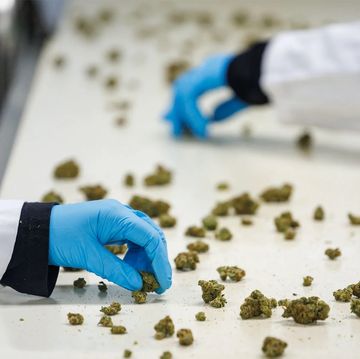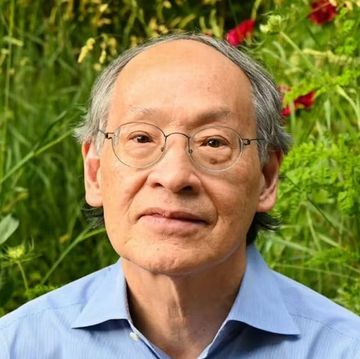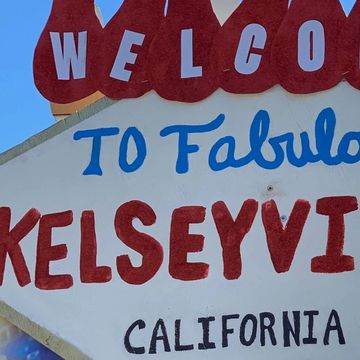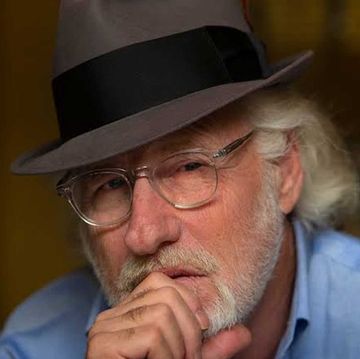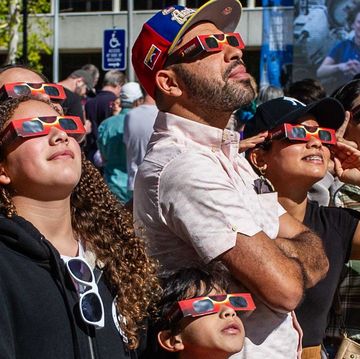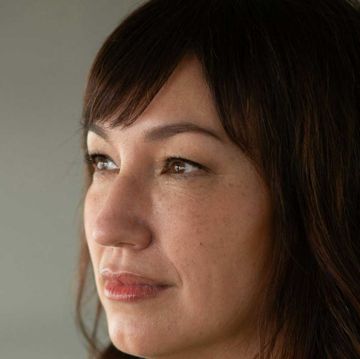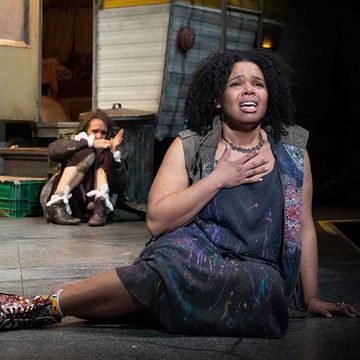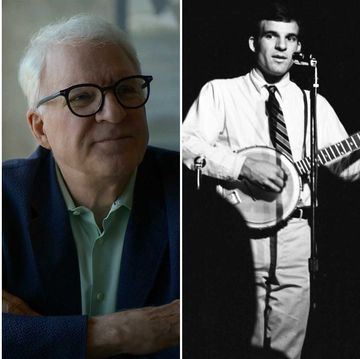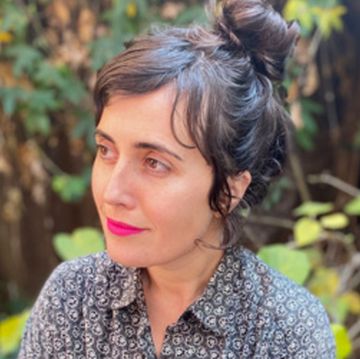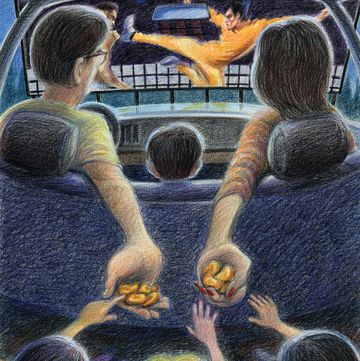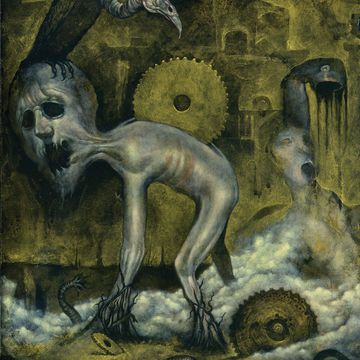To navigate you must be brave and
to be brave you must remember
—Grandmaster Mau Piailug
For thousands of years the Pacific Ocean was a highway. Our ancestors rode the waves, drop top with wind in our hair, following the bass of the ocean, the signs in the sky. We arrived on new islands before leaving, arriving, and leaving again. Our thirst for the ocean was unquenchable. We explored every corner of the Pacific years before any pākehā ever dared to sail into our waters. Before they tried to claim they discovered us, before they tried to break us, shame us, tell us what we were, we already knew what we were: the greatest voyagers who ever lived, traversing the largest ocean on the earth.
Kupe is often said to be the first voyaging Polynesian to have landed in Aotearoa. The story goes that he happened across our islands as he chased the great octopus Te Wheke o Muturangi across the moana. Some tellings say it was his wife, Kuramārōtini, who saw us first. First she spotted birds making circles in the sky and then, pointing at the thick shroud that surrounds our islands, she exclaimed, “He ao! Aotea!” and so our islands would become known as Aotearoa, land of the long white clouds.
The waka of my people, Horouta, is said to have arrived in Aotearoa around 1250, about 100 years before the arrival of the seven waka. That’s how thirsty for the ocean my people were. We brought with us sweet potato, poutama, pōhutukawa, a scruffy little dog named Whakao. Pawa was the captain, while Kiwa was the tohunga. Horouta was damaged at Ohiwa, so Pawa left the canoe to find resources for repair on the mainland. Meanwhile Kiwa managed to steer the waka to Gisborne, where he waited for Pawa to meet him with the gathered materials. The area where he moored was named Tūranganui a Kiwa, or “the great waiting place of Kiwa.” Only we didn’t wait very long before taking to the ocean again. Horouta is said to have made various trips back and forth across the moana, ferrying more supplies, more people to this new land. And it was fast—faster than the Endeavour, faster than any pākehā ship—knots on knots tying one land to the next. Horouta means “land passing swiftly.” We were never a still or stagnant society. We moved swiftly, and we came and left with the tides.
On the plane ride over the Pacific, I listen to Te Kahureremoa’s debut album, Acts of Service. It dropped like a hook in the sea and all the wāhs have been caught on it, playing it on repeat. The lead single, “Ōrongonui,” is the sexiest thing I have ever heard. I imagine she has written from the perspective of Hineahuone, the first woman who was shaped out of red clay by Tāne Mahuta, god of the forest, as she walks alone on the beach, experiencing her fully shaped adult woman body for the first time. She feels the breeze on her skin, the sand beneath her feet, ocean licking her ankles, and she feels it all as sex, as the pulse and te ha of life. It makes me feel thick and glossy, as I listen and try to imagine what it must be like, to have your body and the entire world, all to yourself.
Tēnei au, Tēnei au
Ko te hōkai nei o taku tapuwae
Ko te hōkai nuku, Ko te hōkai rangi
Ko te hōkai nei o tōku tinana
This is me! This is me!
This is the width of my footstep.
This is the expansive earth,
The expansive sky,
My body too, is expansive.
When pākehā arrived in the South Pacific, some were fascinated by our wahine. They were titillated by our beauty, but horrified at the same time. On the occasions they were welcomed, they were welcomed with our full manaaki: fresh water, kai, and a woman to warm them when the sun fell at night. They took us to bed and were surprised that we looked them in the eye. They were surprised that we moved. Before Christianity’s cross threw its shadow across our lands, we were not shy of our bodies or the oceans they contain. We understood that the wet, salty part of us was capable of creation but, as the laws of utu demand balance and reciprocity, capable of destruction too. If you have the power to create life, then you also hold the power to bring about the end of it.
When the Polynesian demigod Māui Tikitiki-a-Taranga tried to cheat death and gain immortality for mankind, he did so by attempting to enter the womb of Hine-nui-te-pō, goddess of the underworld, as she slept, but she awoke to him and crushed him inside her. Māui, the trickster god—who slowed the sun, fished up the islands, won man the gift of fire—was extinguished in his last attempted triumph, and the lives of men permanently doomed to end, all because he tried to enter a woman when he wasn’t welcome.
I pay $200 for my two-kilograms-overweight bag from L.A. to San Fran and I don’t understand this, because I didn’t buy anything but Victoria’s Secret underwear and a puka shell necklace in L.A. When John sees my big pink monstrosity of a suitcase, he laughs and says, “That suitcase is so you.” I laugh too as I tip out a small maunga’s worth of clothes onto the floor of my Airbnb. That Polynesian urge to “keep it fresh, no matter where you be,” as expressed in the Polynesian anthem “Nesian 101,” is too real.
I take out all the poetry books and the heavy pair of expensive Y/Project jeans and stuff them into the Telfar I use for carry-on. I think this ought to do it, but when I check in for my flight from San Fran to Portland, it’s overweight again. The baggage attendant asks for my photo ID. I give him my passport, and he turns it over in his hands. He notices the hot-pink fishhook hanging around my neck and points it out. “Hey,” he says, “are you Polynesian?”
I take off my Miu Miu shields and tell him yes, I’m from Aotearoa. I tell him I’m Māori and add that I’m Samoan too. The latter is a lie, but it works. He points at himself, and I remember that Samoans always have the best teeth as he says, “I’m Samoan too!” with a “chee hoo.” He asks me where I got my hook from. I tell him it’s a Rangi Kipa.
All the modern Māori girls have one. He asks me if I saw the rugby last night and enjoys telling me that Samoa beat New Zealand, 26–nil. I tell him it’s nice to finally meet a Poly over here. NZ Samoans and American Samoans fight so much on Twitter, I thought the West Coast would be full of Polynesians, I explain. He sends my suitcase through and tells me not to worry about the fee. I slap his hand and kiss his cheek: “Fa’afetai sole. Fa!”
I make my way to the gate, and when I sit down I open Twitter. The Polys are fighting again. Someone has tweeted, “The real losers are the Polys in America.” Someone has tagged their friend in the replies, and they’ve replied, “I’m from Otara you kunt.”
The hei matau is a symbol of ancient navigation. The great Māui carved a hook out of the jawbone of his grandmother, then used it to fish up the stingray Te-Ika-a-Māui. When he pulled the beast from the depths of the ocean, he was in awe of its flat, shimmering planes and envisioned his people thriving on its back, but his brothers were hungry, and before Māui could stop them, they took to carving up and eating the fish, and in their greed, they created mountains and valleys—the landscapes of the North Island of Aotearoa. His waka became the South Island, Te Wai Pounamu.
Other tellings say that when Māui fished up the North Island, Hikurangi, the mountain of my people, was the first point to breach the water. His waka, Nukutaimemeha, rests atop Hikurangi and is the first point in the world to see the sun each day.
Either way, the hook became a symbol of navigation and discovery—connection too. When we sail, we do not sail toward new lands—rather, the islands come to us; we hook them and pull them toward us.
When I’m 12 years old, I join Poly club. We spend all year preparing for a performance at Elim Church, the Polynesian mecca on the industrial side of Elsdon. We practice barefoot at lunchtime and after school. The boys slap siva into their chests while the girls pick and pass around flowers made out of air. We wiri like a breeze moving through leaves, or like the sun bouncing off the surface of water. When we haka, we flare our nostrils and roll our eyes back as if we can already smell, and are thirsty for, our enemy blood.
Next week we will be grouped into islands: Aotearoa, Samoa, Tokelau, Rarotonga. For months I have fantasized about the coconut shell bras the girls in the Cook Islands group wear. In the rare moments I have privacy at home, I roll the colorful Samoan lavalava my stepfather keeps in the linen cupboard until it is short and low on the hip and use a hair tie to make my sports bra more shapely. My body is not yet a wahine—not quite a duplicate of Hineahuone—but it’s getting there. I practice the movements we have been learning—try using the balls of my feet to throw my hips out wide like the ocean. When Whaea Tarnz assigns me to Rarotonga, I thank all the Polynesian gods.
But there is a problem on performance day. We are backstage getting slicked with Vaseline and coconut oil. There are not enough coconut bras to go around. Whaea Tarnz demands that some of us switch out and join another group. Her direction is met with silence. Us girls all drop our eyes and hold our breath. No one wants to give up their taonga, the coveted halves of a coconut representing our womanhoods on the horizon. Our avoidance inspires Whaea’s irritation. Her face assumes the shape of a taniwha. She tells us to hurry up. She tells us we’d better step up and switch out or none of us will be going on. She tells us, “Kia tere!” We are all looking at one another with pained, defensive expressions when from the other side of the room we hear, “Tayi could come join the Māori line? She’s Māori.” I look up and it’s my cousin. I look at her and wish she wasn’t. I wish whatever ancestors she has who are different from mine stayed on whichever island they came from, never made it across the moana. Whaea rolls her pupilless eyes toward me. She tells me to join the Māori line. She tells me to smile about it. I don’t smile about it. I’m dark the entire time someone’s mum scrapes my hair back in a bun and paints my lips black. No one dares talk to me, because I’m brimming with salt. Before we are about to go on, Whaea scolds me again. “You better pick that lip up off the floor, girl, before I pick it up for you and slap a smile into your face. Smile and be welcoming. Haere haere mai rā,” she mocks.
“Haere haere mai rā,” we sing.
It’s beautiful in Santa Monica, but I know no one and it makes me homesick. I put on low-slung jeans, tiny tops, and all of my gold and stone jewelry and take myself for walks along the beach. Men approach me and I let them. The tall Egyptian offers to take me surfing. I eat battered shrimp with a short vato who keeps a tequila bottle in his pants and tells me he is in love with me within 15 minutes. “If you want me to leave you alone, I will leave you alone. Just thank you for taking this time with me. I’ll remember this day my whole life. I’m serious. I love you. I’ll look out for you forever.” I meet a Jamaican from New York while he is walking his dog. He rolls soft, leafy blunts for me in his one-bedroom penthouse and takes me dancing in a club near the sea at night. He is surprised when I know all the songs; he is surprised that I can move. I tell him I’m from Polynesia, and we dance like the ocean too.
But I still feel lonely. It’s true what they say about L.A. The air is polluted with lost spirits. They make the place slippery and vapid but beautiful too, filtering the sun like a stocking over a camera lens. I chuck my headphones on and listen to Lana. “Baby if you wanna leave / Come to California, be a freak like me too.” I look at the waves and the palm trees in black and white and agree. L.A. makes people crazy. Everyone I’ve met has a desperation to their drive that unnerves me. It’s different from back home. Our boys are smoky and aimless. We have our own ghosts. I can communicate with our kēhua, but here we talk and I can tell they’re not really interested in getting to know me—rather, they want to be known, to be seen and witnessed by someone and my eyes will do for now. I don’t begrudge them this. Who doesn’t want to be seen? I strip down and wade into the water and wish someone particular was here to experience me. I’m the most beautiful near the ocean—it’s where I make sense—the waves of my hair, the bays of my body, tough skin that can be kissed by the sun without reddening with embarrassment or shyness. I feel brave in the ocean—have since I was a kid, whole summers jumping the bridge after school and choking on salt or Nana chasing us around the tides, pretending to be a taniwha. When I was little, I would float in the shallow part of the ocean where the water stays warm and imagine my hair was green and dark gold seaweed until my body would begin dissolving, like Pania. I try to re-create the sensation—obliteration—but can’t quite achieve it. I think about texting, but send a telepathic message on the tides instead. Don’t be scared of our connection.
L.A. is still a fictional place. Men drag little carts of “beach essentials” on a loop; a gull keeps flying over the same point in the sky. I’m lonely and wild, searching for wairua in the simulation, but I can’t find the connection and wonder for a moment, Is the hook between our islands broken? But the ocean is here, our oldest ancestor. I hand myself over and let Tangaroa witness how beautiful and grown-up I’ve become, how far I’ve traveled.
He called it “private beach” but it was just a little clearing near the motorway. Every day that summer, he would pack us leftover barbecue, stone fruits, hot coffee, and ice water and lead us down there. To get there, you had to cross the main road, a park, meters of gorse and cutty grass, until the grass fell away into a bank and below was the smallest resistance of sand. The sand could barely fit a towel, and you had to walk for miles out into the harbor before the water felt your waist. The shore was littered with mangroves, and I would make him laugh by gathering their seeds and serving him a driftwood plate of edamame. There was a yacht that often docked in the water, but sometimes we would go to real beaches and the boat would be there. We realized it was the paparazzi following us, so every time we caught it catching us we would go crazy, scream at it to leave us alone and kiss beneath our beach towels. We bonded over how hard it was to be famous. We never got any privacy. All we wanted was to go to the beach and hold hands like a normal couple. That was supposed to be the appeal of private beach: no one else ever went there. And if it wasn’t for the paparazzi, we would have been alone together and free to do whatever we liked. After private beach, we would walk back to his big empty house and wash the sand off in his daughter’s abandoned kitset pool.
He moves to the city’s most affluent suburb. The streets are full of mansions and imported exotic trees. Hibiscus plants grow like weeds. At the end of every street are small but popular bays. Everyone meets down on the beach late evening, and I enjoy being part of the scene, all the girls in the best bikinis, swimming at sundown.
After I gift him an expensive hardcover full of centerfolds, he becomes obsessed with the curation and development of my own “playboy tan.” He can’t keep his hands off the sunscreen and the sunscreen off me. When we decide to swim, we alternate on who has to dive in first. I help him practice his cute swimming. I wade three meters away and count him down from 10. He always tells me to come closer, but I move away as soon as his head is underwater. Every time he surfaces, he thinks he nearly died. He asks me what I want for dinner, and I always want nasi goreng, a coke, and a hot dog.
But it’s not always a good scene. I try to leave, but the ocean keeps calling me back. I return, even though most of the year it’s too cold to swim, and the water becomes polluted and unsafe after it rains. It rains a lot, and when the sun isn’t blinding me, I have to admit that most of the year is spent conforming to storms. Sometimes I lie flat and quiet, offering peace. Other times my anger manifests in smashing waves that don’t let up until everything and everyone is exhausted. I have that taniwha in me too, and sometimes I feel so betrayed, so abused, I’m vindicated knowing what Tangaroa is about to do. As the glaciers melt, the water boils, and I wait for his rage to rise up and reclaim everything. He sees what I see: that only the rich get to live in peace; they steal up all the properties by the sea, burn down our villages, and kill us for it.
Pania was very beautiful, but her beauty belonged to the ocean. In the evenings, she would swim upstream to where the water was sweet and rest between the harakeke. It was there that she saw the local chief’s handsome son Karitoki, drinking from the river. She watched him bring the water to his lips in cupped hands, and she wanted to be that water. She observed him for weeks, whispering love spells on the wind, until finally, bold with desire, she revealed herself to him. He took one look at the bays of her body, the wave of her hair and immediately fell in love. He had never seen anyone so beautiful before. She was as beautiful, wet, and glistening as the Pacific Ocean.
After nightfall, when his village was quiet and cloaked, Pania let Karitoki take her to bed. She loved the dry grass and smoke smell, the feel of feathers beneath her bare back. She loved his hook-shaped taonga, the way it swung in her face like a deep-sea fish mesmerizing its dinner. But he was gentle with her, like the tides licking the shore on a calm day. In return, she was smooth and encouraging, parting effortlessly as he steered. They navigated her waters all night, but when the sun started to warm the horizon, she had to return to the ocean. Otherwise she would die. But she promised Karitoki that she would return each night, and they could continue their love story then.
Pania kept her promise, and for a while they loved like this, under the cover of darkness and parting ways when the ocean called to her just before dawn. After a while, however, Karitoki grew impatient. He wanted Pania to himself. He grew choppy and gray. Pania noticed when he held her. He started letting her go in the morning instead of kissing her damp skin over and over until she’d giggle and fight him off, because it was getting late late and now she really really had to go. But he loved her, that she knew, and she held that in her mind as she came and left and came again, just like the tides.
Then one night, while Pania was sleeping, she dreamed about a kahikatea tree so large that when it fell, it became a bridge connecting this world to the next, one side of the Pacific to the other, the land of man into the heart of the ocean. It was a beautiful dream, and she imagined her children walking across the tree freely, able to come and go as they liked, the whole world open, fluid, and connected. Then suddenly the tree burst into piping orange flames. Smoke covered everything. Fish began surfacing, upturned and poisoned. A deafening noise flooded the sky. It was the sound of a thousand ruru, like a warning.
She woke to the sound of a single morepork. It was pleading with her to wake up, to open her eyes. She could taste the betrayal in her mouth. The cooked human food she was not allowed to eat. She knew Karitoki had done this to her. He had visited a tohunga and learned how to trap her. She spat the food from her mouth. The ocean stung in her eyes, and she cried at him, “Why did you do this? Why have you betrayed me?” But it didn’t matter, because she had no choice now. The taste was making her convulse. She took one last look at her traitorous love, then fled back into the ocean. Her heart was cold and raw.
As soon as her body felt the water, she started to break down. She preferred it this way. She did not want a body that could be held so tightly and hurt so badly. The stories say her body became the reef off the coast of Napier, but to this day, if you look out past the reef and hold your stare for long enough, you can see Pania with her arms outstretched. No one is quite sure whether she is yearning for her love or pointing out his treachery. Probably both.
In a way, this is the fate for wahine like us. Like Māui’s grandmother Muriranga-whenua, we would break our own jaws if it meant making a hook to feed our people. We are born prepared to give anything and everything we have, and are often given up in the process.
I tell Sasha about Pania as we down oyster shooters and eat salmon in an upstairs bar called Sirens that overlooks the Salish Sea. Sasha tells me about her own sea maiden, Maiden of Deception Pass, who instead of dissolving into a reef becomes seaweed. She tells me her people are protected by orcas, and I tell her my ancestor Paikea survived being thrown off the waka and left to die by his jealous brother by pulling up to Aotearoa on the back of a whale. “Spirit animal,” she says, and I give her our word for it, kaitiaki. We bond over being obsessed with The Little Mermaid when we were little, forever forcing the tape into our grandmother’s VCR. We bond over a lot of things. We bond over an ocean.
Sasha takes me to talk to her creative writing class at Evergreen State College in Olympia. I’m obsessed with the campus drowned by walls of green pines. Before class, we smoke with her boss, Dawn, and a student called Wyatt on a little landing at the top of the steps. We’re smoking and cracking jokes when I feel a tap on my shoulder. I turn around, and in the distance I see a carved house, but it’s not a longhouse or is it? I hesitate. No, it’s one of our houses, a whare whakairo. I recognize our carvings, the specific way we shape our ancestors out of wood. I point it out. That’s Māori, I say.
Wyatt takes us down to the whare. He is the longhouse intern, and he has a set of keys. The whare was designed by Ngāti Pikiao, Ngāti Rangiwewehi, and Te Arawa master carver Lyonel Grant in collaboration with Coast Salish carvers. Her name is Paimāarire. Peace, serenity.
Sasha and I admire the traditional Māori carvings next to the traditional Salish pou. There is an inscription on the whare that flows from te reo to Lushootseed to te reo again. I put an arm around Sasha, laugh and tell her, “This building is so me and you.” Sasha gasps as she examines our tekoteko, “You use abalone for the eyes too,” and we take this small but beautiful commonality as proof that our ancestors had once looked one another in the eyes before, pressed their noses together, shared breath, and, after, collected shells off the rocks and sucked the meat out together. I look at Sasha and I want to hongi her.
We stand in front of the pāua eyes of our ancestors, bleeding pink, blue, and silver as they witness us together. We witness them together too.
He is fascinated. I can tell. A wahine is sensitive to this sort of thing. I feel his eyes on me before I lift my own and catch his. He is curious. We cannot deny our inheritance. We can try to forget but it never forgets us. I’m beginning to understand that I am as vast and exciting as the ocean, and he’s got that discoverers blood in him. I have a few drops too. I feel the pull and the tension. But it’s been how many years since we first made contact, and of course there is a lot to account for.
In my more generous moments, I think about the early days—in my history undergrad, we called it “the middle ground”—when both parties recognized something in each other, wanted that something from each other, but wanted to share and offer something in return too, and there was potential for something new, mutually beneficial, and exciting to develop.
But he is scared of his own nature, and that becomes obvious to me. He lives in affluence, in the city, where the rush of water is drowned out by the rush of footsteps, traffic, blood. Still, he tries when he can. He walks between the trees, looks at the ocean. In his more generous moments, he likes the way it makes him feel impactless. It is a pleasant sensation, obliteration, but it is, of course, a lie. It doesn’t matter how lightly he tries to tread, he still makes an impact. Besides, you can’t know the full width and wrath of nature until you commit to dancing with a wahine in her waters.
Too scared, too responsible, too apologetic, too many things to lay claim to what he instinctively wants—the ropes he uses to tie himself to my waka are as light and transparent as cobwebs. I can’t use them to pull him to me, or to get us anywhere, so I just touch them for a moment, then let them evaporate away.
On my last day on the other side of the moana, we visit Uncle Muck, who is carving paddles, preparing for Canoe Journey. He reminds us that both our people were seafarers. We did not travel by land; we took to the sea, took to our rivers. He describes the Pacific Ocean as a freeway, and Sasha and I have been talking about this for days now, so we take Muck’s words as a tohu, an offering of synchronicity and confirmation from the ancestors. After Muck’s, we take mushrooms and look for salmon in the forest, but the riverbed is dry except for one tiny salmon, beached on the stones. At first it’s heartbreaking, and the weight of our similar histories of desecration hits us and leaves us hurt. But then the mushrooms kick in. We look up at the trees and can clearly see the faces of rangatira, and Sasha makes a joke that it’s her ancestors making fun of us like Here is your spiritual salmon, now get out of here. Before we leave, I take a photo of Sasha on top of a fallen tree suspended over the empty river, but for a moment I can almost visualize a frenzy of water, a bounty of salmon jumping up to greet her.
We go home and build a fire in the backyard and listen to the rez dogs howl at the moon. Sasha burns cedar and we pull cards for the trip home. Madelaine expresses insecurity about claiming her Mexican heritage because her family is disconnected. I tell her about the seeds of Rangiātea. I tell her that even if you don’t know who your ancestors are, I promise they know you, and they can always come and find you if you want them to, if you ask. Madelaine says “Thank you” and “I’m going to cry” and then she cries. I cry too as I try to explain to them how thankful I am for their manakitanga, for making me feel at home somewhere far from where I’m from. Suddenly I’m thinking about my mother, my grandmother, my great-grandmother and how, for their whole lives, they remained on the whenua just to tend to me like a garden. I feel my body as a tree, grown, felled, and carved by their hands. I feel like a waka. I wonder how long it has been since my line has thrown their hook out and fished this far. I wonder if my great-grandmother can see me from her place in the stars. I remember toward the end of her life her eyes were pale but glossy like pāua. We talk over tea until 3 a.m., and then we say goodnight and goodbye for now.
Mā te wā.
E kore au e ngaro, he kākano i ruia mai i Rangiātea.
No matter where I am scattered, I will never be lost, because I am a seed grown in Rangiātea.
On the West Coast, I have a recurring dream of my sisters and I. We stand on a beach back east. I face them and they face me. It’s a gray day. The clouds cling low, and there is no distinction between sea, sky, sand. They watch me solemnly with their big black eyes, and I feel a low chant of panic in my stomach as I try to discern what they are feeling—disappointed, sad, cold, abandoned—as I am being sucked out to sea, backward into the future. Waves slap the shore like poi, and although no one is speaking, I am being told Haere rā, e hine. Hoki mai. Hoki mai rā.
I swim every day in L.A., and I think it’s funny that it took flying to the other side of the world to swim in my moana again.
The last time I swam in the Pacific Ocean was two New Year’s ago, on a last-minute road trip to Gisborne. I lay across the back seat in Joy’s lap while my entire mauri churned. We had done so many drugs over the Christmas period. Every day, we’d Uber to Oriental Bay, do bumps out of my nails, and swim. Ancestors began creeping up in the corners of my eyes. Joy smoothed my hair.
I hadn’t been back up the coast in years, not since we’d buried my great-grandmother Harata back into the earth we were all made and shaped from. I remember waking early on the final day of her tangi and not wanting the sun to come up because the lid would go on and on and on each day, the sun would keep rising, even though all the light in the world should have left with her. That’s how I felt about her. I pressed my face against my great-grandmother’s cold cheeks for the last time and felt part of myself freeze. They closed her coffin. When her sons began lowering her into the ground, I looked at my mother and felt sorry. I looked at her and I thought, No one is going to look after us anymore.
After the ceremonies, the goodbyes, before the long drive back to Wellington, my whanau thought we should stop and visit the moana. Though no one said it, the death of our matriarch meant this would probably be the last time we would be back here on our whenua together. I couldn’t stand it. I left them behind on the beach and walked across the road to a paddock of horses. Even the ocean could not compete with all the salt water welling inside me.
And years later with a carful of girls, I felt my chest move with that same swell. When Evie pulled the car over, I left my girls on the beach and walked out alone to meet the ocean. I waded until the water reached my heart and I cried. I cried a couple of proper, guttural, ancestral cries. “Auē, auē, auē.” I miss my great-grandmother so much.
I think about when she was a girl, how she would play in the same ocean, how her mother used to make her and her siblings collect driftwood on the way home from school but they had to be back at 3 p.m. on the dot or face a beating. Once, their teacher walked them home and tried to explain to my great-great-grandmother, Riria Karaka, that it was impossible for her children to be let out of school at 3, collect wood on the beach, and be home at 3 at the same time, so Riria smacked the teacher with a bit of wood too.
I think, This is not an ocean that coddles you. It is the strongest muscle on earth.
After a minute or so of crying, I become self-conscious and shut up. I splash my face with water, and I’m about to go join my friends on the beach when a wave dumps me under and snatches the pounamu bracelet from my wrist. When I realize it’s gone, I search for it, but the tides are forceful and aggressive, and I can’t find it again.
Some say that our ancestors take our taonga away when we’ve been playing up, when we’ve been going down the wrong path, making the wrong decisions. You’ll lose a greenstone earring, or the cord around your fishhook will snap. I think about the girl on the beach and feel uneasy. I feel the drugs that are drying out the ocean in my body. I think about the affluent man who thinks he controls the weather, makes me forget my own nature. I think about my great-grandmother,
how I molded myself around her presence, feel like I collapse in her absence.
Sometimes I feel so directionless and lost at sea that I think, OK, might as well do anything and find myself anywhere.
But I know that if Harata was here, she would also tell me to pick my lip up and shut up, but keep my chin up too. There is so much beauty in the world left to view, you just have to know where to look and what stars to connect to get the full picture.
I decide the bracelet is a koha back to the whenua, to our ocean. Fair enough, I concede, I’ve been away for too long.
Our people almost lost not only the art of celestial navigation but our belief in it too. They told us we were wrong. They told us that it was not possible. They told us that we lacked the correct ships, equipment, and skull shape to be capable of such achievements. They said we must have arrived in Aotearoa owing to “accidental drift,” as if we went out for a fish one day, fell asleep at the helm, and woke up miles away from Hawaiki, confused as hell. We forgot the ocean was a highway. We drew our waka high up on the sand, and eventually the sand buried them. I suppose it’s hard to take to the sea when you have to stay and fight for the land.
Then one day, the stars aligned for our people again. The ocean above and below full of ancestors decided to show us the way. A man named Hekenukumai Busby was tasked with unburying the canoe we had forgotten. His profession thus far had been bridge builder. It’s funny the way life prepares you for your destiny—he was destined to be a connector.
A Northland boy, when Hek was young he was often taken to Waitangi, the place where our treaty was signed. While his cousins ran around, being ratbags, Hek instead would visit Ngātokimatawhaorua, the waka that was carved to mark 100 years since the signing, then promptly beached and put away. Hek fell in love. He wondered if he would ever see a waka like that take to the open ocean again. Even then, he had a sense that he was living with some dormant wayfinding DNA and that one day he would find a way to get our people on the water.
On the other side of the moana, in Hawaii, a navigator named Nainoa Thompson had been given the same task. Hek met Nainoa in 1983, a year before Nainoa planned to take his waka Hōkūle’a from Hawaii to Aotearoa. Hek told Nainoa, “In this land, we still have our canoe buried. In this land, we still have our language and we trace our genealogies back to the canoes our ancestors arrived on. But we have lost our pride and the dignity of our traditions. If you are going to bring Hōkūle’a here, that will help bring it back.”
When Hōkūle’a arrived at Waitangi in 1985, the great politician James Hēnare said it was the happiest day in his life, because it proved to the critics that our ancestors had taken the same voyage before. We were not only capable but masterful. He expressed his hope that one day we would create our own waka and reclaim our voyaging traditions.
When Hēnare passed, Hek mihied to him at his funeral and promised he would fulfill his dream. When Hek left the marae, he headed to the bush and knocked down the trees he would use to create his first waka. Using a hand-drawn image from a book by ethnographer Elsdon Best, Hek would create a double-hulled voyaging waka that would completely change his future by connecting him with his past.
Hek, like Nainoa, learned star navigation from Grandmaster Mau Piailug, from the small island of Satawal, in the Caroline Islands. Mau Piailug had learned the art of star navigation and open-ocean voyaging from his grandfather, who had been taught by his father before him. To Mau Piailug, writes Nainoa, navigation for his people was “not about cultural revival” but about “survival”: they needed to travel to fish and find enough food. As young as one year old, Mau was sat in tide pools at different times and encouraged to feel the subtle changes in the water.
Concerned that his knowledge might be lost forever when he passed from this world, he opened his closed practice and decided to share his knowledge with Hek and Nainoa. Mau taught them about the movements of clouds compared with the surface of the water. He taught them how the positions of the stars change as we move across the ocean, Polaris disappearing, the Southern Cross burning brighter and higher in the sky.
The night before Nainoa was to make his first trip from Hawaii to Tahiti, Mau had Nainoa point in the direction of Tahiti, and then he asked him, “Can you see the island?” Nainoa hesitated. Of course he couldn’t. But he trusted his teacher and thought until he finally understood and said, “I cannot see the island but I can see an image of the island in my mind.” Mau approved. “Good. Don’t ever lose that image or you will be lost.” Later, Mau told Hek, just as he had told Nainoa, when we navigate we must hold everything in our minds.
When we navigate we must hold
everything in
our
minds.
Hek completed his first ocean voyage in 1992 when he sailed his waka Te Aurere from Aotearoa to Rarotonga. Despite having grown up out on the water, catching ika and diving for cray, Hek had rarely sailed out of sight of the land before, but when he did and was surrounded by blue as far and wide as the eye could see, he did not feel scared. He felt excited. He knew that life as he had known it was over for him and that this was what he was always supposed to do.
When Hek arrived in Rarotonga, he was thankful for the ei katu he wore on his head, as it obscured all the salt water streaming down his face. The prime minister stood and said, “Over 650 years ago, your ancestors left here for Aotearoa, and today you have finally returned, so welcome home.”
Those who welcomed him in Rarotonga, Hawaii, Rapa Nui, and Tahiti welcomed him home.
Sasha drops me at the airport, and I cry and kiss her and tell her it’s her turn to cross the moana next. I get on the long 16-hour flight and watch the documentary Whetū Mārama, and this chokes me up and makes me cry some more. I’m so tired, I imagine my tears dripping right through the floor of the plane and straight into the Pacific Ocean, and I am reminded of Teresia Teaiwa saying we “sweat and cry salt water so we know that the ocean is really in our blood.”
I realize that I am not learning something new about myself exactly, but I am remembering something. I am remembering the significance of my inheritance. I am remembering what it means to be Indigenous, tangata whenua. The land is central—it is our tūrangawaewae, our place to stand. But perhaps the whenua can also be a tree cut, carved, and carried by the currents miles away from where its seed was sown. Maybe anywhere that the ocean touches is still home, and even if you travel far, Māui’s hook has your back, and that connection will always keep you connected and will always help you come back. I am remembering that this is what we were always supposed to do, to go out and come back like the tides, with new resources and stories to share. I am remembering why my people chose the coast as our home. We did not want our children to lose sight of the sea. We wanted them to look out at the horizon and feel that excitement and desire to go out and see what our ancestors had seen, and for a moment, I feel as though I have the potential, encouragement, and guidance to go anywhere in this life, and I get this sensation—a vast rush—like the buzz of all the stars is in the belly of me. And I can hear it—the energy of the universe, the mauri in my body—the same as a crash of a wave, a roaring whisper.
Wellington Harbour used to be a lake where two taniwha lived: Whātaitai and Ngake. The two water spirits were brothers but were very different in nature. Whātaitai was gentle and easy, preferring to spend his time sunbathing on the shores, whereas Ngake was restless and excitable, forever snapping his jaws at low-flying birds and chasing ika. For a time, they were satisfied with their surroundings. There were enough fish, birds, and eels to entertain them and fill their days. However, as the taniwha continued to grow bigger, Ngake became stifled and uninspired by his environment. He would often ask the seabirds to tell him what was beyond the lake, and they would tell him about Te Moana-nui-a-Kiwa and all the creatures and gods who lived there. Ngake loved these stories and spent his days fantasizing about racing ururoa and wrestling wheke. He became determined to see for himself, and one day he told Whātaitai that today he would leave the lake to explore what was beyond. Using the muscle of his tail, Ngake forced himself forward, hoping to clear the surrounding landscapes and dive into the Pacific. However, he misjudged and accidentally hit and cracked the encircling cliffs, causing a rupture that would eventually turn the lake into a harbor. Though he was injured and bruised, Ngake managed to escape from the rocks and slip into the ocean. Whātaitai did not want to leave. He was comfortable sticking to his small, familiar pool, and he begged Ngake to stay there and be happy within the limits of the lake with him. When he realized Ngake had left, he tried to follow him, but he hesitated and found himself stuck between the lake and the sea. Stranded and unable to move, Whātaitai eventually died there, his body becoming the rock formations that surround the suburb Hataitai. When Whātaitai died, his spirit transformed into a bird, Te Keo. Te Keo flew to the top of the nearest mountain, Matairangi, and cried because he could now see the expanse of the ocean, and he mourned for the freedom he never got to experience. Some tellings say that as Te Keo lamented and stared out across the water, he saw Kupe and his people chasing the great octopus Te Wheke o Muturangi into the harbor. He thought of Ngake and hoped that what they were about to discover was worth what they had left behind, and then Te Keo passed on. Ngake can still be seen swimming in the turbulent waters that fill Te Moana-o-Raukawa, the Cook Strait.
Back on the whenua, before I make it home to Wellington, I stop in Tāmaki and meet Miriama at her cousin’s apartment across from Albert Park at 6 a.m. I give her the choker of seashells and purple beads I bought on the Santa Monica Pier and a bottle of our favorite island girl body spray from Victoria’s Secret. She blows up an air mattress for me while I shower, and then I sleep deeply until midday. We head off to the Viaduct Harbour for lunch, where we down oysters and glasses of prosecco with a view of the harbor. Miriama says it’s important to surround yourself with loved ones when you come home; it’s good to smell the sea, ground yourself again.
Later, full of bubbles, I catch an Uber to the affluent suburb. We head down to the popular bay. We look for shells to hot glue to his veranda and fall asleep on the silly beach towels I ordered for us last summer: a sunset and a crayfish. He is as red as a lobster when we wake up, and I choose to commit him to memory like this: vulnerable and humbled but smiling, good-natured.
Even if we wanted to come back we can’t. Not how it was, anyway. At the height of summer, a cyclone moves through the city and tears the small bay apart, crushes the staircase and pulls the wooden swing beneath the pōhutukawa tree off its ropes and litters it somewhere in the water.
Never mind the bay—you’ve seen the width of the Pacific, anyway. There are larger oceans to traverse.
I cannot think about the ocean without thinking about the stars. I cannot think about the stars without thinking about my grandmother. I cannot think about my grandmother without thinking about the whenua, and I cannot think about the whenua without thinking about our people. I cannot think about our people without thinking about our creation stories. I cannot think about creation without thinking about sex. I cannot think about sex without thinking about connection. I cannot think about connection without thinking about the ocean. I cannot think about the ocean without thinking about the stars.
One more.
When I was the smallest I can recall, I used to slip from my mother and sneak down the hall and into my grandmother’s bedroom. I would pull on her like a rope until she would lift me up and hold me to her. She would tell me about the east coast and how she returned there all the time. She could fly there with her mind, and come back before the morning.
Falling asleep, I would listen to her breathe—the same as holding a seashell to your ear and hearing the endless echo of the ocean. I still listen for that sound with the people I love.
After sex, with my head on his chest, we move with the same rise and fall. As I drift it’s like floating in the ocean, the way love lifts then drops then lifts you again.•
GLOSSARY
Aotearoa, New Zealand
auē, cry of distress
chee hoo, Samoan cry of excitement or appreciation
ei katu, garland of greenery
Fa’afetai sole. Fa! Thank you, bro. Bye!
haere haere mai rā, welcome
haere rā, farewell
haka, a war dance
harakeke, flax bush
Hawaiki, ancestral, spiritual homeland
He ao! Aotea! A cloud! White clouds!
hei matau, fishhook
hoki mai, come back
hongi, pressing of noses, sharing breath, traditional greeting
ika, fish
kahikatea, white pine
kai, food
kaitiaki, animal guardian, protector
kēhua, ghost or spirit
kia tere, quickly
koha, gift, offering
lavalava, Polynesian wraparound cloth skirt
manaaki, hospitality
marae, communal tribal meeting grounds
maunga, mountain
mauri, life force
mihi, address, speak to
moana, ocean
ōrongonui, good day, moon phase
Paikea, Ngati Porou ancestor also known as the Whale Rider
pākehā, a person of European descent
Pania, a sea maiden
pōhutukawa, tree with bright red flowers that bloom in the summer
pou, pole or pillar carved with images of ancestors or deities
pounamu, greenstone
poutama, a type of pattern
ruru, morepork
siva, a Samoan dance
Tāmaki, Auckland
Tangaroa, god of the sea
tangata whenua, people of the land
tangi, days-long funeral procession
taniwha, water spirit, monster, dragon
taonga, treasure, traditional(esque) jewelry
te ha, breath
Te Moana-nui-a-Kiwa, the Pacific Ocean
te reo, short for Te Reo Māori, the Māori language
tekoteko, carved human form
tohunga, seer, witch doctor
tūrangawaewae, tribal land, important place, home
ururoa, hammerhead shark
utu, law of balance, revenge
wahine, woman
wāhs, slang for wahine, or woman
wairua, soul
waka, canoe
whanau, family
whare whakairo, carved meetinghouse
wheke, octopus
wiri, a hand movement used in kapa haka, a Māori performing art
Tayi Tibble (Te Whānau-ā-Apanui/Ngāti Porou) is the author of the poetry collections Poūkahangatus and Rangikura. In 2017, she earned a master’s degree from Victoria University of Wellington, where she was the recipient of the Adam Foundation Prize in Creative Writing. She lives in Wellington, New Zealand.

